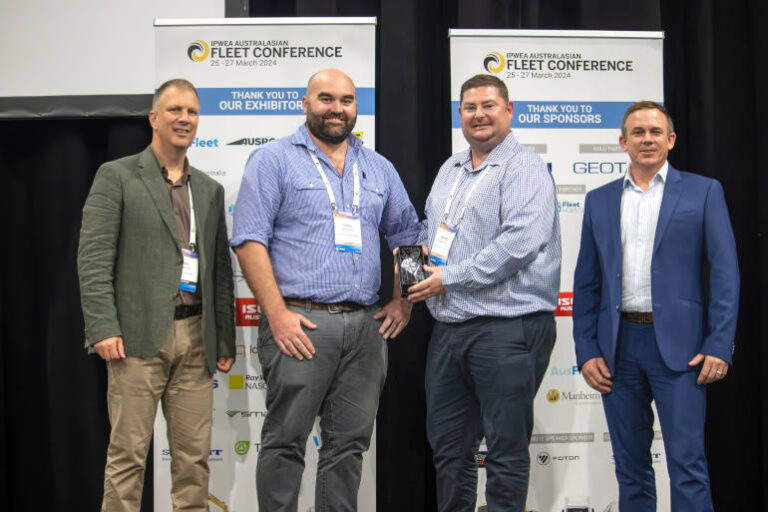The winner of the inaugural IPWEA Fleet Innovation Award was Dubbo Regional Council for their submission which demonstrated how they have taken different approach to implementing telematics.
Daniel Peterson, Manager Fleet and Depot Services at Dubbo Regional Council, accepted the award which was announced at the 2024 IPWEA Fleet Conference.
“Our innovation is not a new technology but how that technology is utilised,” said Peterson. “Telematics have been around for many years, most councils have either dabbled in it, or considered implementing telematics but very few have implemented a system and manage it effectively.”
“Implementing and installing a system is only one of the steps. The most difficult part is gaining Executive buy-in by developing a bullet proof business case. But the most important part of the process is understanding the potential benefits and implementing a policy, systems and processes to capitalise on those benefits.”
Dubbo Regional Council started thinking about telematics differently after attending the 2023 IPWEA Fleet Conference and discussing the challenges they faced with several suppliers in the exhibition hall. One supplier appeared to have the right solution so they started a trial with 19 vehicles of different asset classes.
A common issue with telematics is the lack of staff engagement, or a lack of understanding on how to use the data, so the information is only used after an incident occurs. Peterson and his team had experienced this with their previous supplier so they were determined to demonstrate to the executive that if telematics is used to its full potential, significant financial savings and operational benefits can be achieved.
“After our trial of the new system and realisation of the potential cost savings and efficiencies, we carried out a review on current processes and practices of our stakeholders. Our aim was to understand their operations and how it affects the use of our equipment. There were many inconsistencies found. For example, crews leaving a truck idling all day for the use of the beacon, so the battery doesn’t go flat, even though the truck had been fitted with a dual battery system to run accessories.”
In their submission for the 2024 IPWEA Fleet Innovation Award, Dubbo Regional Council outlined the cost and the savings proposed in the business case. The upfront costs involved hardware for 280 assets and the ongoing costs are related to software and reporting.
They have estimated savings of over $350,000 per annum from a number of areas:
- Fuel savings from reduced idling (plus the reduction in CO2 emissions).
- Reduced servicing costs and downtime.
- Improved resale values due to less hours caused by excessive idling.
Council also expects further saving because downtime and equipment failure causes a decline in productivity when work crews are unable to perform their duties. There has also been a reduction in at-fault accidents and repair costs since the system was introduced which weren’t included in the original business case.
“It was then determined that council’s current Workplace Surveillance Policy covered our legal obligation however, it didn’t have the detail required to manage the telematics system to its full potential. A stand- alone Telematics Policy was developed.”
“If we had to go through the same process again, I would recommend that we start with developing the policy first.”
Daniel Peterson, Manager Fleet and Depot Services at Dubbo Regional Council
“For us, the policy was after the trial, after developing all the reports and making the system fit our requirements. The rollout could have been a lot quicker if we developed the policy and business case earlier on. One last thing I would change, I would have started our journey into telematics (the right telematics system) years ago!”






